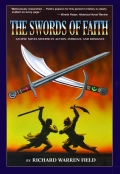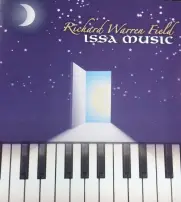Books-Into-Movies: “the five people you meet in heaven” (based on the book THE FIVE PEOPLE YOU MEET IN HEAVEN) July 13, 2012
Posted by rwf1954 in book synopsis, books, books compared to movies, books into movies, Mitch Albom, movie commentary, movies, movies based on books, the five people you meet in heaven.Tags: book commentary, book synopsis, books compared to movies, books into movies, Mitch Albom, movie commentary, movies, movies based on books, the five people you meet in heaven
trackback
(Richard Warren Field wrote the award-winning novel,
The Swords of Faith. Read why this book will make a great movie.)
I stumbled over this sweet movie as an afternoon rerun on the Hallmark Channel, this sweet movie of spiritual speculation. When I saw that the author wrote the screenplay, I decided this would make an interesting Books-Into-Movies post. My wife picked up the DVD (so I was able to watch the movie again uninterrupted and/or unedited to accommodate commercials).
No surprise—the movie stays very close to the book. Most of the time, books are simply too long to adapt into movies without revisions. But Mitch Albom’s novel is short, no more than 50,000 words, so accommodates a movie adaptation more easily than longer novels.
I will focus on changes, but will also comment when I feel a choice to stay with the book is of interest:
- The book starts with the words “The End.” The movie preserves this idea. In the book we have a specific countdown to “The End”—“50 minutes left on earth,” “Forty minutes until his death,” “Thirty-four minutes to live,” “Thirty minutes left”…
- “Eddie Maintenance” is directly from the book.
- The movie does not include the event years before when a car key is dropped and lost in the amusement park ride that ends up killing Eddie. The key lodges in the machinery and causes the mechanics of the machinery to wear down gradually until the afternoon when the ride fails completely.
- The book recounts some of Eddie’s birthdays, providing basic elements of his life story through stories of events on these selected birthdays.
- “I’ve never been anywhere I wasn’t shipped to with a rifle” is a direct quote from the book.
- Eddie kills the “Blue Man” (accidentally)—straight from the book. Albom tells the story from two perspectives.
- Juggling rocks leading to Eddie’s escape from the Japanese is also directly from the book. This leads to the burning of the facility, and Eddie’s suspicion that someone was in one of the buildings. This also includes the captain shooting Eddie to pull him away from the camp.
- There is more back-story on Eddie’s father’s friend, Mickey Shea, the man who tries to force himself on Eddie’s mother, the man who Eddie’s father saves, then catches pneumonia as a result of diving into freezing water. We get a quick glimpse of this back-story in the movie. There is more about him in the book, making Eddie’s father’s actions in the story all the more understandable.
- As in the movie, there is no big emotional exchange when Eddie forgives his father. In both the book and the movie, Eddie’s forgiveness of his father purges his own hate and bitterness, and is clearly for Eddie’s benefit, not his father’s—obviously the specific point Albom makes with this aspect of the story.
- In the book, Eddie gambles on the horses. This is not part of the movie.
- The powerful ending of the five people you meet in heaven is very much like the book, with almost perfect casting for the little girl, Tala.
This movie, adapted very closely from the book by the author, demonstrates the differences between these two story-telling mediums—their strengths and weaknesses. Books do have advantages over movies when elaborating “lessons.” The lesson from each person Eddie meets can be spelled out more clearly in the book. Movies allow more focus on imagery to tell the story. In an instant we can see what a paragraph or two of narrative conveys in a book.



The Blue Man was also more exotic than I though from the book. He has no accent and did not wear the vest thing.